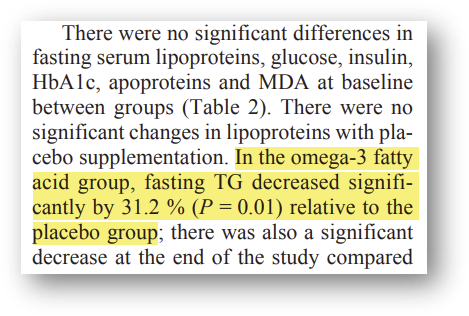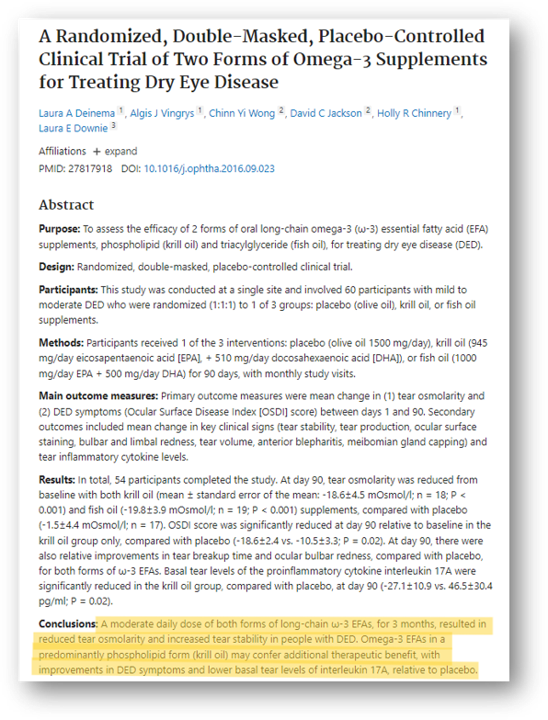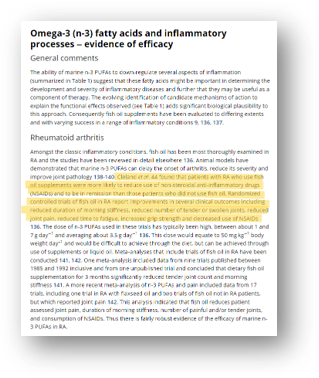Pharmacist who reads papers
Omega-3 From Healthy Blood Circulation to Improving Inflammation
of dry eye symptoms
You've probably heard a lot about the need to take care of triglycerides for vascular health. Triglycerides are a form of fat that is synthesized by the body and can be broken down and used as an energy source when calorie intake is insufficient.



[1] Simonetto, M., Infante, M., Sacco, R. L., Rundek, T., & Della-Morte, D. (2019). A Novel Anti-Inflammatory Role of Omega-3 PUFAs in Prevention and Treatment of Atherosclerosis and Vascular Cognitive Impairment and Dementia. Nutrients, 11(10), 2279.
[2] Shidfar, F., Keshavarz, A., Hosseyni, S., Ameri, A., & Yarahmadi, S. (2008). Effects of omega-3 fatty acid supplements on serum lipids, apolipoproteins and malondialdehyde in type 2 diabetes patients. Eastern Mediterranean health journal = La revue de sante de la Mediterranee orientale = al-Majallah al-sihhiyah li-sharq al-mutawassit, 14(2), 305–313.
[3] Deinema, L. A., Vingrys, A. J., Wong, C. Y., Jackson, D. C., Chinnery, H. R., & Downie, L. E. (2017). A Randomized, Double-Masked, Placebo-Controlled Clinical Trial of Two Forms of Omega-3 Supplements for Treating Dry Eye Disease. Ophthalmology, 124(1), 43–52.
[4] Calder P. C. (2013). Omega-3 polyunsaturated fatty acids and inflammatory processes: nutrition or pharmacology?. British journal of clinical pharmacology, 75(3), 645–662.
[5] NIH, Dietary Supplement Fact Sheets


![[Omega-3 Benefits] From blood circulation health to improving dry eye syndrome, the benefits of omega-3](http://esther-mall.com/cdn/shop/articles/4d9919c795a3af6f507_520x500_efc7d197-695e-4bd2-9e28-c299adf7cdc9.jpg?v=1734621837&width=480)
![[Lactium Benefits] 3 benefits of lactium, from improving sleep quality to relieving stress and depression](http://esther-mall.com/cdn/shop/articles/950064b6f2a61656475_520x500_94b3e952-9aa7-4c60-9d32-ff518d881192.jpg?v=1734621835&width=480)
![[Chondroitin sulfate effect] from pain, swelling, and exercise ability to improvement, 3 benefits of chondroitin for osteoarthritis](http://esther-mall.com/cdn/shop/articles/a89513f8e056783b190_520x500_18fb2bc0-3c95-4a2c-bac1-22bbb18c07c8.jpg?v=1734621870&width=480)
Comments (0)
There are no comments for this article. Be the first one to leave a message!